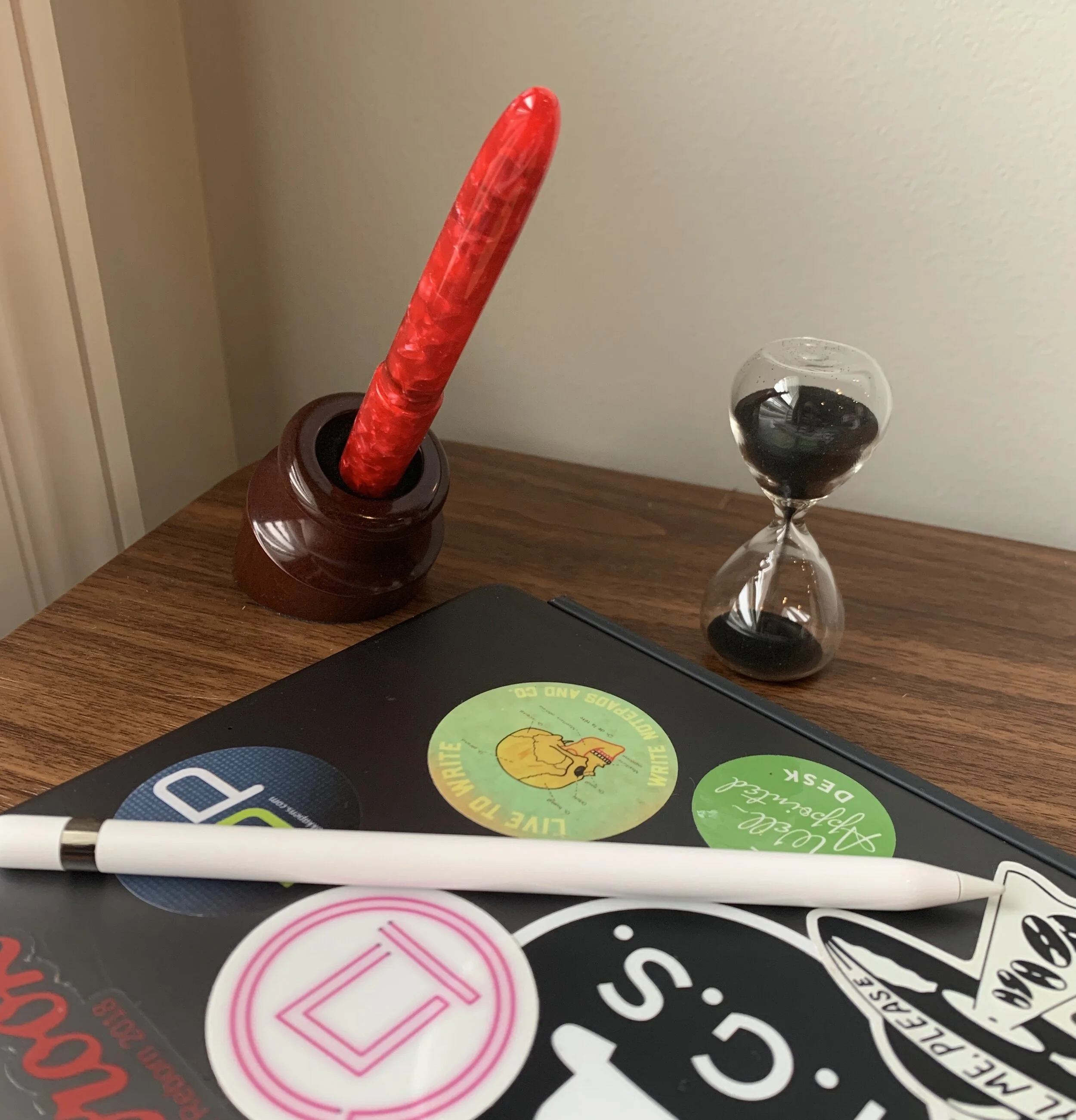During the past several months, one of the most common requests I’ve received has been to talk more about my workflow. Now that I’m working from home nearly full time, what tools/products do I use and how do I effectively balance digital and analog in terms of actually getting stuff done? Well, to be honest, I’ve been avoiding the question because I don’t really have a good response yet. Things changed so quickly that I’ve adapted reactively rather than proactively, and my workflow is a mess. In fact, I’m not even sure that I can say that I have one. This past week I actually delved back into my own archive of work-related posts to see if I could figure out how to get myself back on track.
Strategic Paper Replacement. The biggest culprit? File organization, namely what to save on paper and what to save electronically. If left to my own devices, I’ll always print something out and work off a hard copy with pen or pencil, but unless the project requires deep concentration or is especially complex, it’s unnecessary. Moreover, I’m left with a ton of “junk paper” that needs to either be filed or shredded. My solution? I’m going back to the iPad Pro/Apple Pencil, and trying to be more mindful of what I actually print out. Sure, it involves an up-front investment, but now that I’m having to purchase my own printer toner and printer paper (and lots of it), not to mention dedicating my own personal space to storing physical files, it will eventually be a wash.
Workspace Organization. In the “before times,” my home office served primarily as a library/hobby space, but became a combination law office/library/stationery store/file closet overnight. For the first few months I had piles of notebooks, notepads, journals, binders, printed out legal briefs and exhibits, and more stacked up on the desk and floor, in addition to products for the shop, products for review, and my own collections of books and stationery. Over time, I’ve streamlined my desk setup to a core set of items, and it’s actually turned into one of the most pleasant workspaces I’ve ever had. But in order to further reduce the clutter, I don’t have much of a choice other than to “go digital” in strategic areas.
Planning My Time. A couple months ago I wrote about using a planner to structure my days and stay focused, which has helped me in that I actually complete one task before I pick up another. Otherwise half-finished projects start to pile up, adding to the clutter (both mental and physical). Incorporating a timer into my work routine has also helped, though I opt for a gentler hourglass/sandglass timer as opposed to more jarring buzzer or phone timer.
Apps. I’ve never actually written at length on things like apps and productivity software, partly because what I use isn’t exciting. I work primarily in Office, PDF Pro, Dropbox, and Apple’s suite of stock apps like Mail, Notes, TextEdit, and Calendar. Sure, “better” options likely exist, but people get so wrapped up in finding the “ideal” tool for the job that they spend all their time (and money) switching between apps and don’t get any actual work done. I do have a couple of specialized writing apps that I’ve used for years, such as Scrivener and iWriter Pro, and recently I’ve experimented with using the powerful (and free) Notion to manage my content calendar for this site. The challenge for me is to mindfully choose these tools when it makes sense, especially for things like notetaking and annotation where I instinctively reach for a pen.
I’m a work in progress, and fixing my workflow has been more of a struggle for me than it probably should. I love working with physical media, and my brain definitely functions better on paper than on a screen. But at the same time, new systems need to evolve where the sheer volume of documents and information we’re expected to process makes this unmanageable. My goal has always been to choose the best tool for the job, and I’m slowly coming to realize that the best tool for a specific job may not always be my preferred tool.
I’ve been advised that the “Fun iPad” is no longer work appropriate.
If you’d like to hear more about these and similar topics, let me know. I’m definitely open to delving deeper into the intersection between the digital and analog areas of our lives, and for a while I published a newsletter, Digital Divide, addressing these issues. I’ve considered bringing it back, but I’ve never asked the readership. Meanwhile, what work from home challenges are you experiencing? Have any of you had success addressing similar issues transitioning to full-time remote work?
